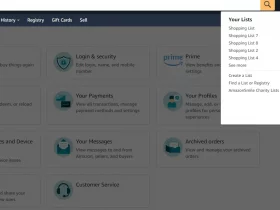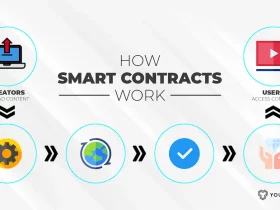Surety bonding is a type of insurance that guarantees to repay debts owed by the principal.
There are many reasons why someone would need to get bonded, but regardless of what you’re doing, it’s important to know how surety bonding works and when you might need it.

How Do Surety Bonds Work?
The basics of surety bonding are pretty straightforward.
If you’re a New York business owner or an individual who is looking to get bonded, you would look for New York surety bonds from an insurance company for coverage.
This fee is called the premium, and it will vary depending on your current financial situation.
For businesses that want to get bonded, their credit score will determine where they fall on our premium spectrum.
Once everyone has exchanged fees and completed paperwork, you become eligible for something called contractor’s bond coverage.
When someone says contractor’s bond coverage, they mean that your surety bond guarantees that you’ll do what you promised.
The only caveat is that this contract must be legal in nature.
If all goes well with your relationship with your surety company – if there are no claims, no debts outstanding, and so on – then your bond will expire in three years.
On the other hand, if something goes wrong at any point in this time, your surety company’s premiums will likely skyrocket to cover what you owe in damages.
There are a few types of surety bonds that pertain to different industries, each with their own premiums and requirements for eligibility:
General Surety Bonds
These kinds of surety bonds are useful for many kinds of businesses.
For instance, if you’re a contractor looking to gain more business through client referrals, general surety bonds can guarantee that you’ll provide quality service within agreed-upon timeframes.
You can also get surety bonds for opening a department store, assuming you meet the business and financial necessities.
Professional Surety Bonds
These kinds of surety bonds are only available to those who represent themselves as legal officers or agents.
For instance, general contractors need to provide a bond that guarantees that they’ll complete all contracted jobs within the agreed-upon timeframes and project specifications.
Attorneys commonly use professional surety bonds to guarantee their work as well.
However, those in healthcare do not need professional surety bonding because it would be redundant with other types of coverage.
It’s also important to note that there are some kinds of surety bonding that you can’t get at all.
For instance, if you’re looking to get your business bonded so your creditors will give your business money, it won’t work.
Surety bonds only cover what has been promised; they don’t go any further than that.
On the other hand, if you need additional assurances for your business (such as product liability protection), then alternate types of insurance might be better for your needs.
What Does it Take to Get Surety Bonded?
The requirements for surety bonding are different for each industry, but in all cases, you will need to provide detailed information about your business.
For instance, if you’re looking to get bonded as a general contractor, then you’ll have to prove that your company is financially sound and can complete the kinds of jobs you’ve been contracted for.
You may also have to present evidence that the job site is safe, up to date on ordinances and permits, and so on.
The same goes for professionals who want to use surety bonds; if you aren’t licensed or registered with your state government, then it won’t be possible for someone else (like an insurance company) to guarantee your work.
Here are a few requirements and steps involved in the process:
- Prove your financial stability through tax files and records for three years’ time (more if required by your state government).
- Show proof that the project will be completed in full in accordance with all local ordinances, codes, laws, etc., considering any permits or licenses that may be needed. If one of these elements is missing then you won’t get bonded.
- Provide evidence that the project site is now, and will remain, up to date on all ordinances and permits. If you don’t have this information you won’t get bonded.
- You’ll need to provide an affidavit or declaration that includes all of the above information. This will be attached to your bond with specific language directing how it should respond in case of a claim.
Why Do I Need a Surety Bond?
There are many reasons why you might have an interest in getting bonded.
For example, if you’re looking to get a job with the federal government, then your first step is getting bonded as part of the application process.
If you forget about this requirement or ignore it altogether, then they won’t consider any other parts of your application.
The only way around this rule is if your agency already has an established surety program in place.
On top of that, some agencies may accept unsolicited applications on their own terms.
That being said, there are cases where federal jobs will admit new hires without bonding them.
This is largely dependent on how much experience and education these applicants have.
How Long Does A Surety Bond Remain Valid?
Surety bonds remain in effect until they are removed, canceled, or terminated.
It’s not a good idea to terminate your bond since it puts you at risk of being sued for any claims that may happen after the termination date.
This is why it is important to consult with our bonding agency before making any changes to your bond.

A surety bond is a security measure for businesses and individuals who need financial backing.
More than likely, marketers who struggle to win customers have either not been prospecting the right way or are simply not putting in enough effort.
In this article we provide an overview of how such bonds work, what they cover (and more importantly do not), as well as some of the requirements that must be met before you can get bonded with one.













